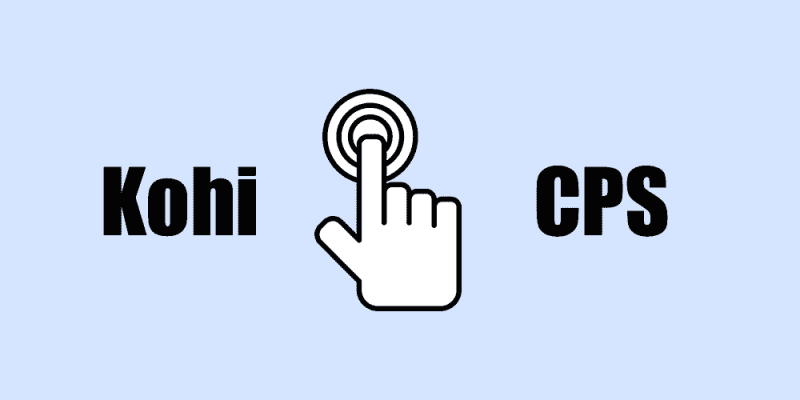In a rapidly evolving world where skill development is the key to personal and professional success, it’s essential to have effective tools and techniques at your disposal.
One such tool that has been gaining popularity in recent years is the Kohi Test.
This innovative approach to skill assessment and improvement offers a unique way to elevate your skills and reach new heights in your chosen field.
In this comprehensive guide, we will explore what the Kohi Test is, how it works, and how it can help you transform your skills.
What is the Kohi Test?
The Kohi Test is a method of evaluating and enhancing your skills in a structured and systematic manner.
It was developed by a team of experts in the fields of education and skill development and has gained recognition for its effectiveness in various domains, including education, sports, music, and business.
At its core, the Kohi Test is a multi-faceted approach that combines self-assessment, practice, and continuous feedback to help individuals improve their skills progressively.
Unlike traditional testing methods that focus solely on assessing your current abilities, the Kohi Test takes a more holistic approach by incorporating the following key elements:
- Self-Assessment:
The first step in the Kohi Test process is to assess your current skill level. This involves a thorough self-evaluation, where you honestly evaluate your strengths and weaknesses in the chosen skill area. Self-assessment allows you to gain a clear understanding of where you stand and what areas require improvement.
- Goal Setting:
Once you have assessed your skills, the next step is to set specific and achievable goals. These goals serve as the foundation for your skill development journey. They give you a clear direction and motivation to work towards improving your abilities.
- Structured Practice:
Practice is a fundamental aspect of skill improvement, and the Kohi Test places a strong emphasis on structured and deliberate practice. It provides you with a roadmap for practicing your skills in a systematic manner, focusing on the areas that need the most attention.
- Feedback Loop:
Continuous feedback is crucial for growth. The Kohi Test incorporates feedback from mentors, peers, or self-assessment tools to help you identify areas where you can make improvements. This feedback loop ensures that you are constantly refining your skills.
- Regular Assessments:
Regular assessments are conducted to track your progress and measure your skill development over time. These assessments are designed to be objective and quantifiable, allowing you to see how far you’ve come.
How Does the Kohi Test Work?
Now that we have a basic understanding of what the Kohi Test entails, let’s delve into how it works in practice:
- Self-Assessment
The journey begins with an honest self-assessment. Here are some key steps to follow during this phase:
- Identify the specific skill or skills you want to improve.
- Reflect on your current proficiency level in those skills.
- Determine your strengths and weaknesses.
- Consider your long-term goals related to these skills.
- Goal Setting
With a clear understanding of your current skill level, it’s time to set SMART goals – Specific, Measurable, Achievable, Relevant, and Time-bound. These goals should be tailored to your skill development needs and aspirations.
For example, if you want to improve your public speaking skills, a SMART goal might be: “I will deliver three well-prepared speeches at local events within the next six months, each with a Click Speed Test 100 Seconds attendees.”
- Structured Practice
Structured practice is the heart of the Kohi Test. It involves breaking down your skill into smaller components and working on each one systematically. Here’s how to approach it:
- Identify the key elements of your skill.
- Create a practice schedule that includes daily or weekly sessions.
- Seek out resources and materials to support your practice.
- Feedback Loop
Feedback is invaluable for skill development. In the Kohi Test, you have several options for obtaining feedback:
- Self-assessment: Continually evaluate your performance and compare it to your goals.
- Peer feedback: Collaborate with peers who have expertise in your skill area and exchange constructive feedback.
- Mentorship: Seek guidance from experienced mentors who can provide valuable insights and advice.
- Technology tools: Use skill assessment apps or software to track your progress and receive automated feedback.
- Regular Assessments
To gauge your progress, schedule regular assessments at predefined intervals. These assessments should be designed to objectively measure your skill development. Depending on the skill, assessments may involve practical demonstrations, written tests, or other relevant evaluation methods.
- Iteration and Adaptation
The Kohi Test is a dynamic process that encourages iteration and adaptation. If you find that certain practice methods or goals are not yielding the desired results, be open to adjusting your approach. Flexibility is key to continuous improvement.
Tips for Success with the Kohi Test
To make the most of the Kohi Test and truly elevate your skills, consider the following tips:
Commit to the Process: Skill development is a journey that requires dedication and persistence. Stay committed to the Kohi Test process, even when faced with challenges.
Seek Quality Feedback: Actively seek out constructive feedback from mentors, peers, or technology tools. Embrace feedback as an opportunity for growth.
Stay Flexible: Be willing to adapt your approach as needed. If a particular practice method is not yielding results, explore alternative strategies.
Celebrate Achievements: Recognize and celebrate your milestones and achievements along the way. Positive reinforcement can boost motivation.
Set New Goals: As you achieve your initial goals, set new ones to continue pushing your boundaries and expanding your skillset.
Embrace Failure: Understand that failure is a natural part of the learning process. Use setbacks as opportunities to learn and improve.
Stay Inspired: Stay curious and inspired in your chosen field. Read, explore, and engage with others who share your passion.
In Conclusion
The Kohi Test offers a structured and effective approach to skill development that can elevate your abilities in various areas of life.
By combining self-assessment, goal setting, structured practice, feedback, and regular assessments, you can embark on a transformative journey of skill enhancement.
Whether you aim to excel in your career, achieve academic success, master a sport, or unleash your creative potential, the Kohi Test provides a roadmap to help you reach your goals and elevate your skills to new heights.
Commit to the process, stay adaptable, and embrace continuous learning, and you’ll be well on your way to personal and professional excellence.
Read More: Advanced Strategies for Minecraft Game







Comments